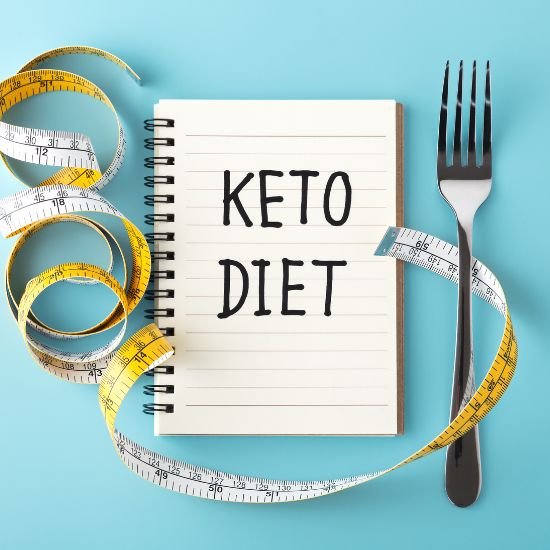
What are the health benefits of dietary supplements ?
Share
The Health Benefits of Nutritional or Dietary Supplements.
Compiled by Annette Dickinson, Ph.D I The Science behind Supplements
Why food supplements I What are dietary supplements I Vitamins and Minerals I Vitamin supplements I Type of dietary supplements I Nutritional supplements benefits.
Nutritional health supplements or Dietary Supplements: What You Need to Know -
The majority of adults in the U.S take 1 or more dietary health supplements either every day or occasionally. Today’s dietary supplements include Minerals , Vitamins, Herbals and botanical's, amino acids, enzymes, and many other products.
Dietary Health supplements come in a variety of dosage forms: traditional tablets, Capsules, and powders, as well as drinks & energy bars. Popular supplements include vitamin E & D ; minerals like Iron and calcium ; herbs such as garcinia , curcumin and garlic; and specialty products like collagen , mct , glucosamine, probiotics, and fish oils.
Promoting health, preventing disease
Nutrient shortfalls have health consequences that could impact daily life and overall well being. Surveys of National nutrition show shortfalls in intakes of many nutrients. Recommended Dietary Allowances (RDAs) established by the Institute of Medicine are the targets for desirable nutrient intakes for individuals, and Estimated Average Requirements (EARs) are lower levels of intakes that may signal a risk of nutrient deficiency in a population.
About 1/3rd of nonsmokers and over 2/3rds of smokers fail to get even the EAR (Estimated Average Requirements) —let alone the RDA (Recommended Dietary Allowances) —for Vitamin C, even though L ascorbic acid (vitamin C) is relatively easy to obtain from foods; low intakes can lead to poor energy levels and weakness.
Almost all adults fail to get enough E - vitamin , and many fall short in other Minerals & Vitamins , which can impact immune function. More than 3 quarters of women of childbearing age fail to obtain recommended amounts of Fe (iron) ; shortfalls can impair brain function, endurance & physical capability.
Percentage with Nutrient intakes below the EAR (Estimated Average Requirements) OR RDA (Recommended Dietary Allowances) Partial list
|
NUTRIENT AND POPULATION. |
% BELOW EAR |
% BELOW RDA |
|
VITAMIN A Men Women |
57% 48% |
80% 75% |
|
VITAMIN C Non Smokers Men Women Smokers Men Women |
36% 32%
69% 84% |
45% 45%
75% 90% |
|
VITAMIN E Men Women |
89% 97% |
Over 95% Over 97% |
|
IRON Women 19-50 |
16% |
85% |
Who needs supplements? Almost everyone.
Even the most conscientious People find it difficult to get all the nutrients they need from food alone. While dietary improvement is a desirable goal, changing dietary patterns is extremely difficult.
On the assumption that it is better for Individuals to obtain recommended amounts of Minerals & Vitamins than to limp along with low intakes, a multivitamin with minerals which can be purchased for less than a penny a day is an inexpensive and effective way to fill a number of known nutrient gaps.
Experts of Nutrition at the Harvard School of Public Health have created an online version of a Pyramid of food with a notation recommending a “daily multivitamin + extra vitamin D (for most Individuals ).
” Recognizing the special nutritional needs of senior citizens, researchers at Tufts University designed a food guide pyramid for the old age people , which features a flag at the top as a reminder that supplements of Vitamin D , Calcium, and B12 Vitamin may be needed for optimal health.
The American Academy of Nutrition and Dietetics (formerly the American Dietetic Association) has a policy statement emphasizing the importance of good food choices but also recognizing that Dietary health supplements can help some people meet their nutritional needs.
Who takes Dietary Health supplements? Most people do.
Dietary Health supplements are used by the majority of adults in the USA . More women than men use dietary supplements ; use also increases with age & education. A series of surveys recently showed that health professionals are just as likely as members of the general public to use dietary supplements regularly.
Dietary Supplement use should be seen as 1 component of the search for a healthier lifestyle, including improvements in overall food habits & engaging in physical exercise.
While much of the current research on health and nutrition focuses on the prevention of chronic disease, the primary reason most people use multivitamins & other dietary supplements is to support overall wellness.
Benefits of dietary supplements for all ages
A generous intake of Vitamin D plus Calcium demonstrably helps build optimum bone mass during childhood and adolescence and also slows the rate of bone loss that naturally occurs with aging.
National surveys show that United States Calcium & Vitamin D intakes are below recommended levels, especially for women—despite the fact that substantial research has shown supplements of Calcium and D Vitamin to be effective in maintaining or increasing bone density, and potentially in protecting health in other ways as well.
Dietary supplements are similarly helpful in addressing a woman’s increased nutrient needs during pregnancy. Prenatal multivitamins with minerals are commonly prescribed to ensure that both the baby’s and the mother’s needs are met.
In addition to meeting normal needs of nutrients during pregnancy, a multivitamin can also play a critical role in protecting against some birth defects. An abundance of data shows that women who get 400 micro gram of supplemental folic acid / day for 1-3 months prior to conception and 1-3 months after conception can substantially lower the risk of having a baby with a neural tube defect such as spina bifida. In most studies showing these results, the protective amount of folic acid was consumed in the form of a multivitamin supplement.
Adequate nutrient intakes
While intake of adequate nutrients is critical for all age groups, it may have particular significance for the elderly.
Antioxidant supplements have been shown to have a positive impact on Vision health and Brain function. Adequate nutritional status also affects the skin condition and supports functions of lung & muscle .
Calcium & D Vitamin supplements, as previously noted, can have a powerful impact on bone health, and the Surgeon General says it is never too late to benefit from improved intakes of these nutrients.
D Vitamin may also reduce the incidence of falls in elderly people. Vitamin and mineral supplements have been shown in some studies to improve immune function in the old aged people . Low intake of zinc are associated with an increased risk of infections, including pneumonia.
Supplemental intakes of E Vitamin have had a positive effect in decreasing upper
respiratory infections in some studies. For these reasons, it makes sense to encourage the old age people to use mineral & multivitamin supplements.
Some experts have also advocated providing a basic multivitamin and mineral supplement to the elderly in nursing homes, as a matter of policy, to avoid risking the consequences of inadequate intakes.
Traditional models of nutrition and health were focused on dietary improvement and nutritional adequacy. Good dietary patterns and adequate nutrient intakes based on the RDA (Recommended Dietary Allowances) were considered the best guides to health, but chronic disease prevention through dietary modification was not a common topic of discussion.
This focus changed dramatically in the 1980s following the publication of numerous reports suggesting a direct relationship between dietary factors and the incidence of numerous “life threatening diseases.”
The reports asserted that improved dietary patterns, including increased intakes of fruits, veggies , and whole grains, could reduce the risk of chronic disease.
They also discussed which components of these foods were likely to be most protective, including fiber and a number of antioxidant nutrients.
The reports emphasized the importance of improved food habits and downplayed the importance of increasing the intake of specific nutrients, but at the same time numerous clinical trials were undertaken specifically to evaluate the possibility that supplementation with some of the individual nutrients (especially antioxidants) might reduce the risk of Cardiac and cancer disease.
The prevention hypothesis
While countless epidemiological trials support the hypothesis that dietary improvement can reduce the risk of chronic disease, the design of clinical trials to test that hypothesis is a challenge. Nevertheless, many clinical trials have in fact showed benefits
against disease for specific nutrients—for ex., Calcium (Ca) to protect against osteoporosis, Folic acid to help prevent some birth defects, & Omega-3 helps to reduce the risk of heart disease.
On the other hand, clinical trials of Beta-carotene for prevention of Cancer , Vitamin E & for lowering and protecting Cardiac disease risk, and selenium and vitamin E for prevention of prostate cancer so far have largely failed to confirm the health benefits suggested by earlier studies.
There is vigorous debate regarding the appropriate design of clinical trials to test the hypothesis that specific nutrients or combinations of nutrients may help protect against chronic disease. Most trials are done with 1 or a few nutrients, even though Minerals and vitamins generally work as a team in normal metabolism and never operate alone.
Clinical trials are often undertaken in Individuals who have already suffered the disease of interest—for ex., in individuals who have recently suffered a stroke or heart attack. Testing the effects of Mineral or Vitamin supplements in such populations cannot be considered a true test of the prevention hypothesis.
Should the disappointing results of many of these clinical trials lead to a reconsideration of the appropriate study design for evaluating the preventive effects of nutritional interventions? Many experts believe a robust reconsideration is necessary.
Final thoughts
The final thoughts is that a healthy lifestyle must include a focus on dietary improvement. Generous intakes of the essential nutrients will support the normal functioning of the body and enhance health in many ways.









